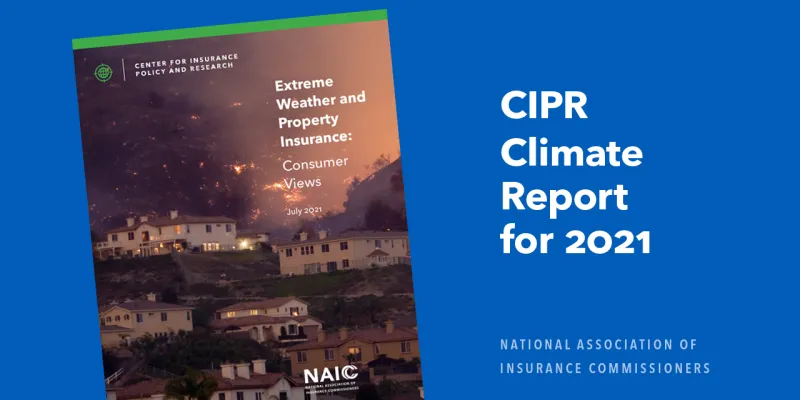
CIPR Issues Report on Extreme Weather and Property Insurance
The increasing number of extreme and catastrophic weather events and their impact on insurance makes studying climate risks and resiliency a critical regulatory function. In order to better understand the connections homeowners make between insurance coverage and weather events, NAIC’s Center for Insurance Policy Research (CIPR) conducted a consumer survey.
Nearly three quarters of respondents said the most significant threats facing their homes today are weather-related, and 68% are aware of things they can do to protect their properties to reduce risk. The top weather-related concerns are water damage from rain or snow melt, followed closely by wind damage from tornados and hurricanes.
In order to educate and engage consumers about reducing their exposures and ways to help make communities more resilient, the NAIC created a multi-media consumer campaign focusing on how to be better prepared for weather-related risks utilizing a three-step approach:
- #KnowYourRisks
- #CoverYourRisks
- #ReduceYourRisks
With 41% of consumers surveyed saying recent weather events could impact their risk of future losses to their homes, CIPR went on to segment homeowners by their climate risk perceptions and geographic region to offer additional guidance. Read the full report.
About the National Association of Insurance Commissioners
As part of our state-based system of insurance regulation in the United States, the National Association of Insurance Commissioners (NAIC) provides expertise, data, and analysis for insurance commissioners to effectively regulate the industry and protect consumers. The U.S. standard-setting organization is governed by the chief insurance regulators from the 50 states, the District of Columbia and five U.S. territories. Through the NAIC, state insurance regulators establish standards and best practices, conduct peer reviews, and coordinate regulatory oversight. NAIC staff supports these efforts and represents the collective views of state regulators domestically and internationally.
